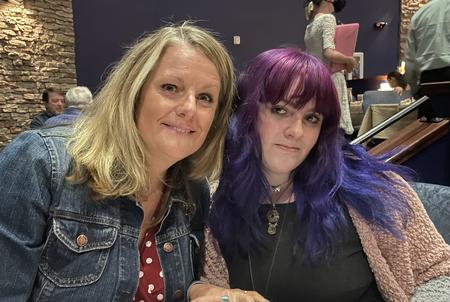Jan. 31, 2022: When a child shows signs of a mental health disorder, it’s critical to get them enrolled in services right away. But for many parents, finding the right care can be a long and exhausting process.
Heidi Lawrence, a single parent living in Longmont, has spent years juggling a full-time job and case management for her 15-year-old daughter, Ella, who went through five inpatient stays in six months. Lawrence constantly ran into roadblocks with her insurance company, while other programs denied Ella care because she wasn’t covered by Medicaid.
“We just kind of hit a wall,” Lawrence recalled. “They just said, ‘There’s not a lot more we can do here.’ It was really disheartening.”
That’s when a provider referred her to the State’s Children and Youth Mental Health Treatment Act program, or CYMHTA, through Signal Behavioral Health. The program, provided by the State’s Administrative Services Organizations, connects qualifying families to mental health treatment, a clinical care coordinator and additional services to keep children and families together during treatment.
The program has grown by 30% in recent years and served 185 children and youth in Fiscal Year 2020–the highest participation since the program’s inception in 1999. To keep up with demand, the State invested more than $500,000 on top of its $3 million annual budget last fiscal year.
The services have been transformational for Ella, who is getting consistent behavioral health care for the first time in her life. After zigzagging between providers, Ella has especially benefited from CYMHTA’s unique in-home approach.
“She unfortunately was over-therapied with all the programs she had been in. Between partial hospitalization, inpatient, traditional therapy, I think she just had enough,” said Lawrence. “Being in her house, with her family, with her familiar surroundings, with her dog—it’s kept her out of the hospital.”
On top of therapy, Ella visits with a psychiatrist over tele-health and has access to respite care, in which a professional can watch Ella when Lawrence leaves the house. Linking up with a dedicated clinical care coordinator has also helped Lawrence focus on other priorities, including supporting the mental health needs of her 13-year-old son, Ben.
“It was a huge mental load on my plate to have to be Ella’s case manager and try to fight for her services,” Lawrence said. “It’s really been wonderful to have our case manager through CYMHTA. She’s been one of the few consistent people throughout the entire process.”
Today, Ella is doing a lot better and has built a strong rapport with her care team. Lawrence hopes more families will access the program and has even sent letters to Governor Polis advocating for its expansion.
“CYMHTA has really been a godsend,” said Lawrence. “We’re a prime example of what this program is intended to do for families like ours.”
